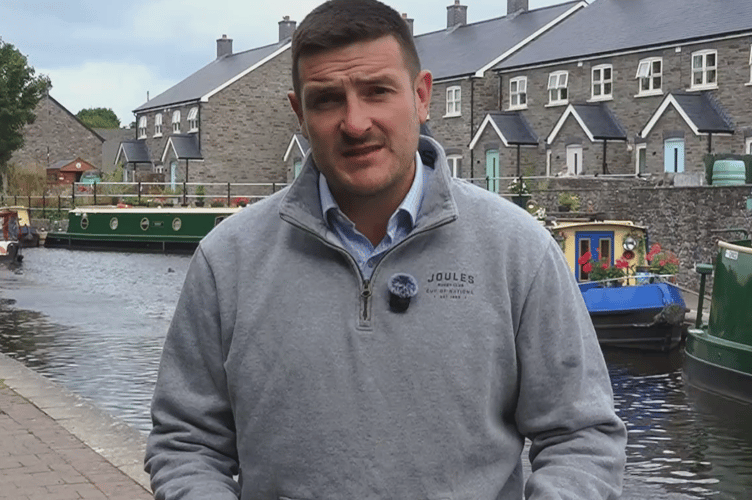The future of the Monmouthshire and Brecon Canal hangs in the balance as a new Welsh Government taskforce prepares to meet for the first time next week.
The meeting on Monday (November 17) will bring together officials, environmental bodies and the Canal & River Trust in an effort to find a long-term solution to severe water shortages that have threatened to leave the 225-year-old waterway dry.
Earlier this year, Natural Resources Wales imposed new restrictions on the canal’s long-standing abstraction licence from the River Usk. It means that during periods of low water, the canal is no longer permitted to draw water from the river - a supply it has relied on for more than a century.
The move, coupled with an unusually dry start to 2025, has left the Canal & River Trust scrambling to keep water levels up. The charity, which operates the canal under its Welsh name Glandŵr Cymru, was forced to buy emergency supplies from Welsh Water over the summer at a cost of around £1 million. But the charity has described the solution as a “temporary fix” and warned that a longer-term strategy is urgently needed.
Brecon and Radnorshire MS James Evans said he fears the canal’s future is at risk unless urgent action is taken.
“Our iconic canal is under threat. Time is running out to find a sustainable, long term solution for the 2026 season and beyond,” he said.
“The Welsh Labour Government and Natural Resources Wales must look again at their decision to limit water abstraction. The environmental impact of reduced water levels, or no water at all in the Canal will be catastrophic on local wildlife and ecosystems. The financial impact of allowing our canal to be close will be felt by many businesses up and down the length of the canal.”
Mr Evans said the Welsh Government’s newly established “task and finish group” must deliver lasting results, warning that the economic fallout of inaction could be severe.
“The Cabinet Secretary for Rural Affairs and Climate Change, Huw Irranca-Davies MS, has established this ‘task and finish group’ with stakeholders to find a solution – but they are shifting the burden onto others when this is a mess of their own making and as a direct result from their policy to limit water abstraction,” said Mr Evans.
“The Canal & River Trust cannot afford to spend another £1 million in 2026 to buy in surplus water from Dwr Cymru.”
The Canal & River Trust estimates the total annual economic activity, or output, generated by the Monmouthshire and Brecon canal in a year is £30 million.
Mr Evans continued: “Estimations for 2026 should this issue continue to be unresolved predict a 50 per cent decrease to £15 million – that would equate to around 500 job losses, a £8 million hit to social value. This will affect the many businesses that are directly and indirectly linked to the Canal. Business are already reporting less bookings from negative publicity, some have taken the decision to cease trading because of the uncertainty. None are investing when their future hangs in the balance.
“I hope that the task and finish group planned for November 17 will come up with long-term sustainable solutions that ensure the future of the canal, whilst also protecting the River Usk. Welsh Government/NRW have created this problem for the canal and they should be the ones finding the solutions.”





Comments
This article has no comments yet. Be the first to leave a comment.